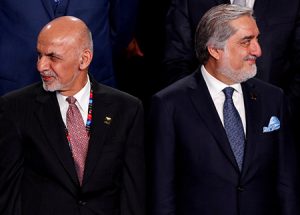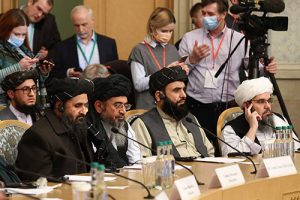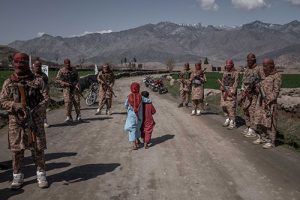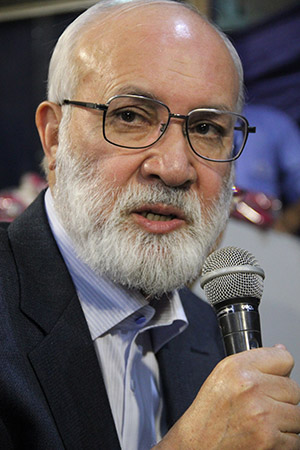The war-weary Afghans are facing an uncertain future as the withdrawal of US-led foreign forces from Afghanistan has been gathering pace.
In fact, the Americans are in such a hurry that they expedited the pullout plans amid reports that the withdrawal would be completed by July instead of September 11, the 20th anniversary of the 9/11 attacks on the US that was earlier announced as the deadline for the exit. Pakistan’s Foreign Minister Shah Mahmood Qureshi, in a briefing to parliamentarians, including those from the opposition, even mentioned July 4 as the likely end-date of the withdrawal.
The haste by the US could be a tactic to put pressure on the inflexible negotiating teams of the Afghan government plus its political opposition and the rival Taliban group to hurry up and attempt progress in their stalemated intra-Afghan negotiations in Doha, Qatar before an uneasy vacuum is created with the departure of the foreign forces. The American pressure would work more on the beleaguered government of President Ashraf Ghani and his electoral opponent-turned-coalition partner, Abdullah Abdullah, who continue to differ even on the contours of the peace process, instead of putting up a solid joint front while negotiating with the Taliban. It is also possible that President Joseph Biden decided to speed up the withdrawal to reduce costs because staying until September 11 will not make any difference to the ground situation as the Taliban have been trying to capture more territory to add to the nearly 50 per cent they already control to strengthen their bargaining position in the talks. Since May 1, when the US forces’ withdrawal began, six district headquarters in different provinces have fallen to the Taliban and Afghan officials and elected representatives have been expressing concern about the precarious security situation even around certain provincial capitals. In May alone, 322 Afghan security personnel and 302 civilians were killed while the number of Taliban fighters who lost their lives in fighting is not known.

Still a ray of hope became visible amid the hopeless situation with regard to the peace talks, when members of Kabul’s negotiating team returned to Doha recently and reports emerged that the Taliban too were ready to resume the slow-moving negotiations. The two sides had met in May after a long gap during the Eidul Fitr holidays in Doha and publicly committed to continue the negotiations for achieving durable peace in Afghanistan. The meeting was held when the three-day Eidul Fitr ceasefire announced by the Taliban and accepted by Kabul was in place and the situation was conducive due to a halt in violence to enable the negotiators to exchange Eid greetings and recommit to work for peace. Earlier, the talks had almost broken down due to wide differences on a host of issues. The only concrete achievement during several sessions since September 12, 2020 when the intra-Afghan dialogue began, was an agreement on the rules of procedure of the negotiations. The negotiators could not make any headway on finalising the agenda. The first task when the talks resume would be to reach an agreement on the agenda points.
For the Afghan government, which refers to the country as the Islamic Republic of Afghanistan, the top point on the agenda is a permanent ceasefire. The Taliban, who continue to prefer the country’s old name Islamic Emirate of Afghanistan when they were in power from 1996-2001, the shape of the future government and the justice system, encompassing the Shariah, is top of the agenda. Without making compromises, finalising the agenda would remain a challenge and only then can the difficult negotiations on substantive issues begin. A timeframe for completing the negotiating process would be helpful to avoid endless talks. A compromise on the formation of the transitional government, which until now has been vigorously opposed by both President Ghani and Abdullah, the head of the High Council for National Reconciliation which was supposed to lead the peace process but has a restricted role due to Ghani’s interventions, would be necessary if the stakeholders are serious and sincere in making Afghanistan peaceful again after more than four decades of conflict.

There is growing concern about further rise in the already high levels of violence if a peace deal is not reached between the Taliban and Kabul before the full withdrawal of international forces, particularly the US airpower that has played a key role in defending cities and sustaining the Afghan government in power. As there is no real hope that a peace agreement could be clinched by then, concern is being voiced not only in Afghanistan but also in the region and beyond that Afghanistan was headed for yet another round of violence or even a civil war that could prompt certain state and non-state actors to back their Afghan allies and proxies. The Istanbul Conference, that formed part of the new US peace proposals and had raised hopes for progress in the peace process, also got postponed and may be cancelled.
The Taliban refused to attend the UN-sponsored Istanbul moot that was to be held from April 24 for 10 days as a mark of protest against the US refusal to abide by the February 29, 2020 Doha agreement and pull out its forces by May 1, 2021. Subsequently, reports emerged that hinted at Taliban willingness to attend the conference in Turkey by sending a low-level delegation, provided it lasted three days only and did not take any major decisions on the future of Afghanistan. With these kind of conditions, there was no use staging the Istanbul conference, which was also going to be attended by foreign ministers of key neighbouring countries and global powers. It is possible the venue would continue to be Qatar as that has always been the preferred choice of the Taliban, who feel at home in Doha, where the Qatari government began hosting their Political Commission in 2010 and is now the place of residence for 60 per cent of the Taliban’s top decision-making body’s membership, the Rahbari Shura.
The Taliban have also been pushing for the release of their remaining prisoners and removal of names of their leaders from the UN Security Council blacklist by reminding the US at every opportunity that in their Doha peace agreement last year, it had committed to start diplomatic efforts for the purpose three months after the beginning of the intra-Afghan negotiations. The US, on its part, has been accusing the Taliban of failing to abide by its commitment to dissociate from Al-Qaeda and other terrorist networks, reduce violence against the Afghan government and engage in meaningful peace talks. Though Zalmay Khalilzad, the US special representative for Afghanistan Reconciliation, told a Congress hearing that the Taliban had abided by the terms of the Doha agreement as not a single US or NATO soldier was attacked or killed since the deal, the Americans continue to blame the Taliban to keep them in check and persuade them to make a transition from an armed group to a political party in order to become part of the existing government set-up.
Though the post-US withdrawal situation is gloomy, there have been bits of news that created optimism. Local elders mediated between the Taliban fighters and government officials in Alingar district in Laghman province to broker a one-month ceasefire to enable farmers to harvest the wheat crop. Such local ceasefires have been made in the past as well in parts of Afghanistan and normally result due to pressure from the local population including farmers, students, teachers and clerics.
Despite unsubstantiated reports that wealthy Afghans are preparing to settle abroad, particularly in Western countries as well as Turkey and the UAE, out of fear that the government could collapse or Kabul fall to the Taliban, the fact that the peace talks haven’t been abandoned remains a cause of hope. Privately, Taliban leaders continue to insist they have no desire to capture power by force again and are willing to seek a politically-negotiated settlement if their rivals reciprocate and show flexibility in the talks. The US, too, has been reiterating that even after pulling out its forces, it would stand by the Afghan government and keep providing military and economic assistance to it, including using its airpower from bases in the region to undertake missions in Afghanistan to pre-empt any likely terrorist threat originating from the war-shattered country.
The need for the US to have airbases close to Afghanistan for taking quick action in case of need also brought Pakistan into the limelight, as the Pentagon claimed that Islamabad had agreed to allow the use of its land and air space and bases to Washington. Pakistan’s denial was followed by a clarification by the US, though one thing that became clear was that their 2001 agreement on the use of air and ground lines of communication passing through Pakistan was still valid and could be used again by the Americans. It was termed as ‘practical cooperation,’ though the implications for Pakistan becoming involved in the Afghan conflict once again could be serious and must be kept in view, more so following the Taliban warning against the use of another country’s soil to undertake attacks in Afghanistan. This could mean further complicating the difficult relations between Pakistan and the Afghan Taliban, who have become emboldened after making gains on the battleground, forcing the US to make a deal with them in 18-month long negotiations in Doha in the absence of the Afghan government and reducing their dependence on Islamabad after managing to build relations with Iran, Russia, China, Qatar, etc.

If this wasn’t a big enough worry, Pakistan also has concerns regarding its troubled ties with Afghanistan due to their deep mistrust sustained by Kabul’s refusal to recognise the Durand Line as an international border, its continued rhetoric highlighting the rights of Pakistani Pakhtuns and Baloch and its close relations with India. Then there is the unending blame-game between Islamabad and Kabul for providing sanctuaries to their enemies, including the Afghan Taliban and its affiliate Haqqani network leaders finding refuge in Pakistan and the Pakistani Taliban and Baloch separatists being harboured by Afghanistan. The most recent glimpse of the distrust were the allegations made by President Ghani about Pakistan operating an organised support system for the Afghan Taliban, barely a day after Pakistan Army chief Gen Qamar Javed Bajwa’s unannounced visit to Kabul due to mediation by the UK and US as part of the reconciliation efforts and discussions on making an unlikely security agreement between the two unfriendly neighbours. Ghani’s National Security Adviser Hamdullah Mohib went a step further in his allegations and infuriated Pakistan so much that it decided not to engage in any meeting with him in future, just as the US had done in his case earlier after one of his familiar outbursts in which he claimed Khalilzad was trying to become the viceroy of Afghanistan by cutting a deal with the Taliban.
Pakistan is in a dilemma as, on the one hand, it is being asked by the US as well as Kabul to do more to facilitate the Afghan peace process by using its influence on the Taliban, but then faces accusations of interfering in Afghanistan’s affairs if it tries to play a pro-active role. The tense Islamabad-Kabul relationship would have to be made friendlier first, not only for the success of the peace process but also for fighting terrorism together.

The writer is Resident Editor, The News International, Peshawar and a BBC correspondent. He is considered an authority on Afghan affairs and was awarded the Sitara-e-Imtiaz for achievements in journalism.

